PureVPN Review: not the cheapest VPN, but still worth it?
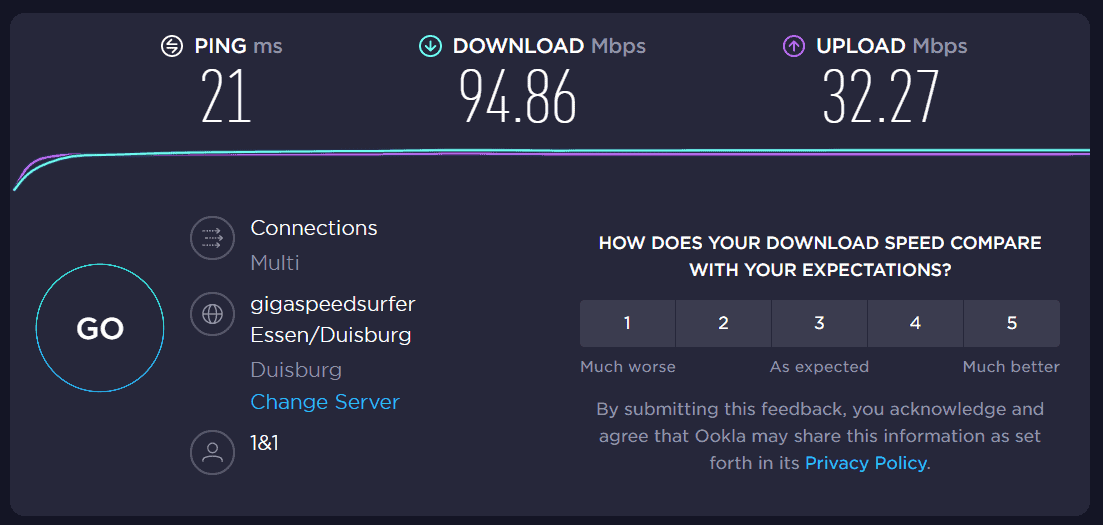
PureVPN is a commercial VPN product by GZ Systems Limited, which is a British Virgin Islands limited company. The VPN service has applications for all major desktop operating systems and mobile operating systems, as well as standalone setup instructions for consoles and other devices.
PureVPN key takeaways
- Programs and apps are easy to use, yet barebones when it comes to configuration options.
- No logging policy verified through third-party audit. Leaked information in 2017 (before the audit).
- 24/7 live chat support
- 31-day money-back guarantee
PureVPN main features & specifications summary
- System compatibility: Windows, Mac and Linux, Android and iOS, browser extensions for Chrome and Firefox, routers and other devices
- Pricing: 1 month: $10.95, 1 year: $5.83 per month, 2 years: $5.82 per month
- Features: Killswitch, Split Tunneling, P2P dedicated servers, 0-logging, paid add-ons: port forwarding, dedicated IP address, DDoS protection
PureVPN pros & cons
Pros
- Supports up to 10 simultaneous connections.
- Servers optimized for p2p and streaming (via browser extension).
- Passed a no logging audit (after an incident in 2017 when it leaked information to the FBI). Entered an agreement with the auditing company to get surprise audits with no prior warning at anytime to regain user trust.
- Good operating system and device support.
Cons
- The applications are somewhat clunky to use and lack features.
- Some streaming services can't be unblocked using PureVPN
- Linux application is command-line based only.
Download options for PureVPN
The main download page for all desktop programs and mobile applications: PureVPN download
- PureVPN Windows download
- PureVPN Mac download
- PureVPN Linux download
- PureVPN Android APK download
- PureVPN Apple iOS download
PureVPN alternatives
The following table lists key features of PureVPN and compares these to other VPN services that we reviewed recently here on this site.
| PureVPN | NordVPN | ExpressVPN | PIA | |
|---|---|---|---|---|
| Servers | >6500 | > 5200 | > 3000 | unknown |
| Locations | 78 countries | 59 countries | 94 countries | 78 countries |
| Connections | 10 | 6 | 5 | 10 |
| KillSwitch | Yes | Yes | Yes | Yes |
| Split Tunneling | Yes | Yes | Yes | Yes |
| Content blocking | No | Yes | No | Yes |
| 0-logging | Yes | Yes, verified | Yes, verified | Yes, verified |
| Smart DNS | No | No | Yes | No |
| Media streaming | Yes | Yes | Yes | Limited |
| Jurisdiction | British Virgin Islands | Panama | Hongkong | United States |
| Other features | Port Forwarding, Dedicated IP address, DDoS Protection as paid add-ons. | Obfuscated servers, Tor servers, double-VPN connections | Custom WireGuard based protocol Lightway | Customize OpenVPN parameters, open source |
| Price (cheapest, per month, longest subscription period) | $5.8 | $3.30 | $8.32 | $2.19 |
What is PureVPN
PureVPN is a VPN service that requires a subscription. It is available for all modern operating systems and can also be added manually to routers and other hardware. PureVPN offers a 31-day money back guarantee.
Why do you need it?
VPN connections are useful in several regards. One of the core features is that interaction with sites and services on the Internet happen through the VPN, which means that the VPN's IP address is used and not the IP address of the user.
Other benefits include options to circumvent geographical restrictions, e.g. streaming Netflix or Hulu while abroad, protection against spying from governments, ISPs and network operators.
Privacy is a key feature when using VPNs, but they serve other purposes as well:
- For P2P activities, which may be blocked or not allowed in a country.
- To unblock streaming services offered in other regions, e.g. to watch Hulu, Disney+ or HBO.
- To access sites that are blocked on the network, by the ISP, or by the government.
- They may improve performance, if the VPN routing is better than the routing of the ISP.
How does PureVPN work?
PureVPN is available as a desktop program, as a mobile application, as browser extensions for Firefox and Chrome, and via manual setups for consoles and routers.
Customers need a subscription to use the PureVPN service, and may use it on up to 10 devices simultaneously. All it takes is to establish a connection to PureVPN using the installed application to start using the service.
PureVPN features analysis
PureVPN ticks the right boxes in several key areas when it comes to VPN services. It has been audited that the company does not log what customers do when connected to the network, and IP tests confirmed that IP information is not leaked. Apps and programs are available for all major operating systems, but the Linux app is command line only.
The VPN has dedicated streaming servers and P2P servers, and these worked well for the most part during tests. Unblocking of streaming providers is often a hit and miss, as providers such as Netflix, HBO or Disney may block VPN server IP addresses.
We had good results for some services, including Netflix and Disney Plus while using the VPN connection.
Privacy and Security features of PureVPN
PureVPN has a few privacy and security features. Its applications come with kill switch functionality, which disables the device's Internet connection if the connection to the VPN drops. Split Tunneling is also supported, which enables the VPN connection for select applications only.
The service uses AES-256 encryption, which is the standard at the moment. WireGuard, a modern protocol that is leaner and more secure, is supported, but may need to be enabled manually.
PureVPN speed and leak tests
Speed and connection performance is an essential criterium when selecting a VPN. While there are others, e.g. privacy and security features, or price, it is important that download and upload speed, and ping, don't drop too much when a VPN connection is established.
I ran all speed tests three times to get an average value. The Internet connection I tested the speed on was a 100 Mbit download, 40 Mbit upload line. The first test was used to get a base value for the Internet connection speed (without VPN). The two other tests benchmarked speed and ping on a local and a remote VPN server.
The company has upgraded several key server locations with faster hardware recently, and ann
Without VPN:
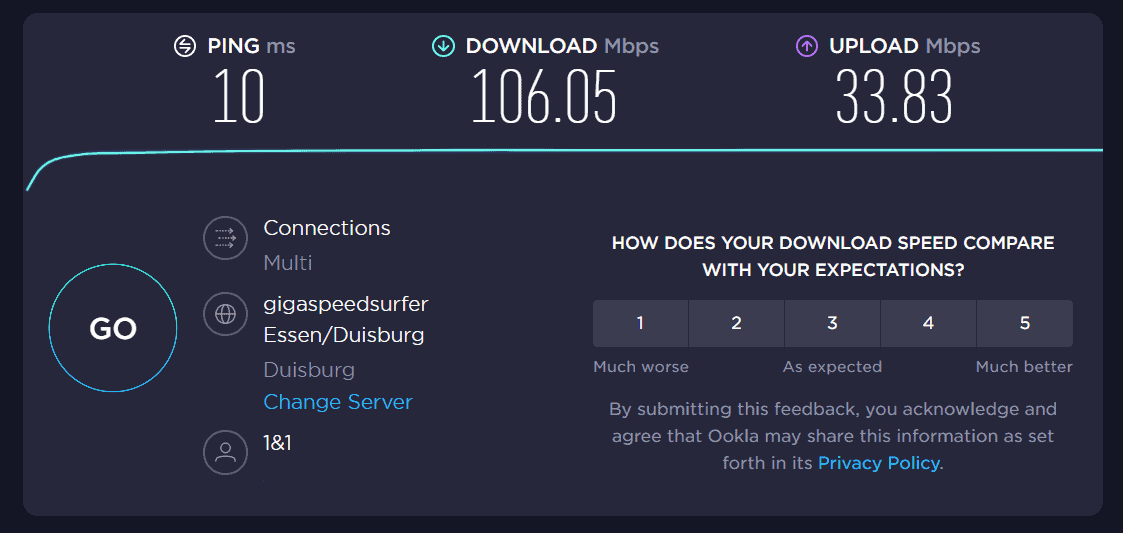
- Download Speed: 106 Mbps
- Upload Speed: 33 Mbps
- Ping: 11 ms
Local VPN Server connection (Germany - Germany)

- Download Speed: 94 Mbps
- Upload Speed: 32 Mbps
- Ping: 21 ms
Remote VPN Server connection (Germany - USA)
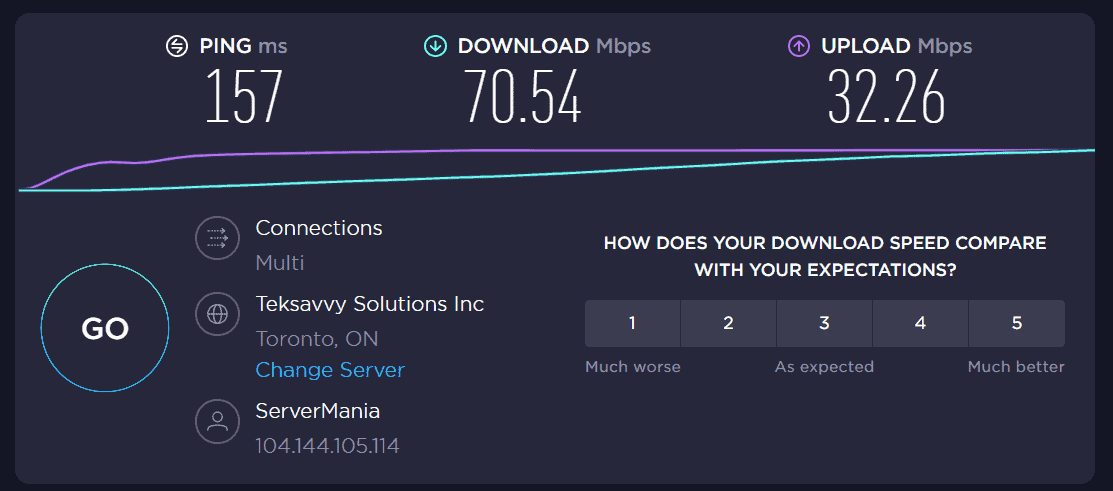
- Download Speed: 70 Mbps
- Upload Speed: 32 Mbps
- Ping: 153ms
Local speed results were quite good. The download speed dropped by about 10% in the test, upload speed remained nearly the same. Ping doubled but was still acceptable at 21 ms.
Connections to servers that are far away, in this case from Germany to the US, always suffer a bit when it comes to ping. The download speed dropped by another 20 Mbit in this case, while the upload speed remained the same again.
Leak Tests
I ran several leak tests to find out if the IP address of the device, or other information, is leaked when connected to PureVPN. PureVPN passed all tests: IP address is not leaked when users connect to the VPN.
- BrowserLeaks IP test -- passed
- IP Leak Test -- passed
- DNS Leak Test -- passed
- Perfect Privacy Test -- passed
How to use PureVPN
PureVPN is available for all major desktop and mobile platforms. It can also be installed on routers, gaming consoles and other devices, e.g. by manually adding the VPN to the router's configuration.
Step 1: Install PureVPN
Installation of PureVPN is straightforward. The Windows client displays just a few options: you may want to uncheck the installation of the Chrome extension during setup if you don't require it. The browser extension does include special features that extend the functionality of the VPN. The option to connect to a popular streaming website, e.g. Netflix US, ITV Player UK, or BBC iPlayer needs to be mentioned specifically. The browser extension blocks WebRTC IP Leaking as well.
You can specify the installation directory on Windows.
Step 2: Configure the PureVPN client
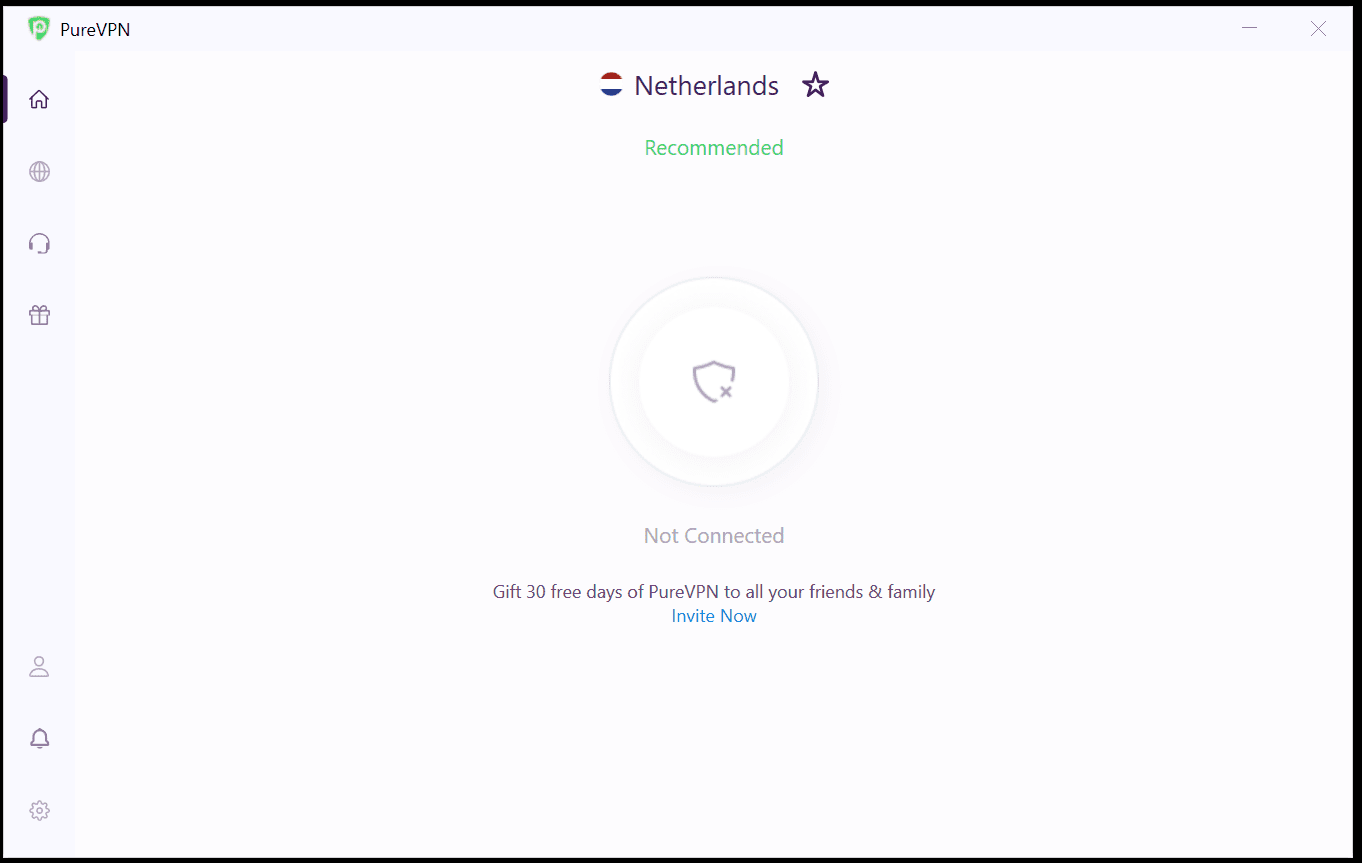
The Windows client is somewhat barebones when it comes to options. It displays an option to connect to a server right away. All other options are displayed as icons on the left side of the PureVPN window.
The second icon displays available server locations. It features a search option, displays pings for servers that you have connected to in the past, and includes options to add servers to the favorites for quick access. Favorite servers are just displayed on the server page, not on the homepage, which means that there is an extra click before you can connect to one of the favorite servers.
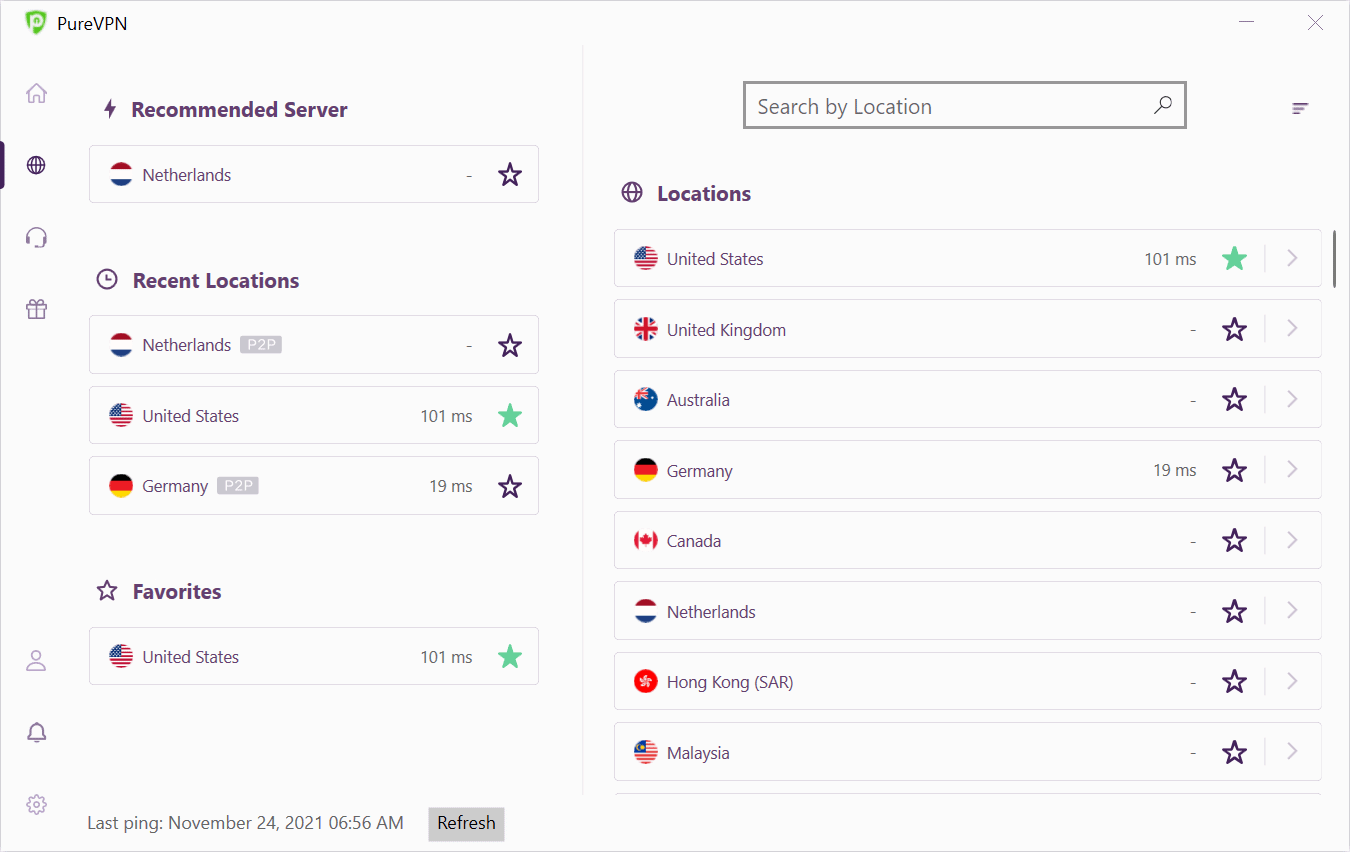
The settings list just a few options. You may enable launch on system start and auto-connect to the VPN when the PureVPN appliocation starts. If you do, you may select a server that you want it to connect to automatically.
The Internet Kill Switch is enabled by default, which is good. PureVPN picks the protocol by default automatically. You may switch that off to select a protocol, IKEv2, TCP, UDP, WireGuard, manually instead. WireGuard is the logical choice, as it is the most modern protocol, but you get a warning that some features may not be working if the protocol is enabled.
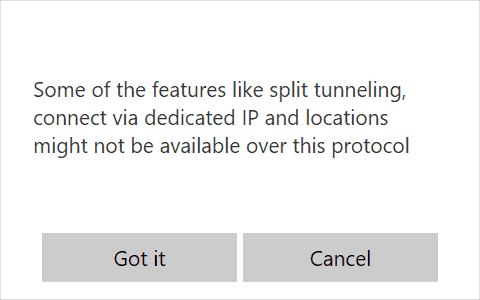
Split Tunneling works by selecting applications that will use the VPN connections, while all others don't. This can be useful if you want to watch Netflix US or Japan using the VPN, while using the regular Internet connection for other activities.
The VPN app includes an option to share a free monthly account via email or links. Lastly, PureVPN added a FAQ section to the app, which answers questions such as "how can I change the protocol", "I'm not able to connect", or "I'm getting slow speed".
Step 3: Connect to a Server
You need to go back to the Home screen to connect to a server. It would be better if the favorite servers would be available directly from that screen, as you get the recommended server only there by default.
The company behind PureVPN
PureVPN is owned by GZ Systems Limited, which is based on the Virgin British Islands according to the website. If you research PureVPN, you will quickly find ties to Gaditek, a company based in Karachi, Pakistan. You find PureVPN listed as one of the company's brands on the official website.
Bottom line, is PureVPN worth it?
PureVPN is a solid choice when it comes to VPNs. It is not the cheapest or fastest, nor the VPN with the most impressive set of features. Things have improved significantly for the company in recent time: speed has improved in key locations thanks to server upgrades, and the independent audit made the company regain some of its credibility after the 2017 incident.
The applications are barebones for the most part and need to be improved to be on par with top of the line providers such as NordVPN. Still, if you can grab a subscription at a discount, e.g. during Black Friday week, you will get access to an improving service.
Disclaimer
Ghacks strives to be a trusted and unbiased website. In some specific cases, we may earn an affiliate commission or write a sponsored article, but an explicit disclaimer on the top of the page will always tell our readers when an advertiser or an affiliate partner is supporting one of our articles. If no disclaimer, it means that we work with total editorial independence.
Advertisement




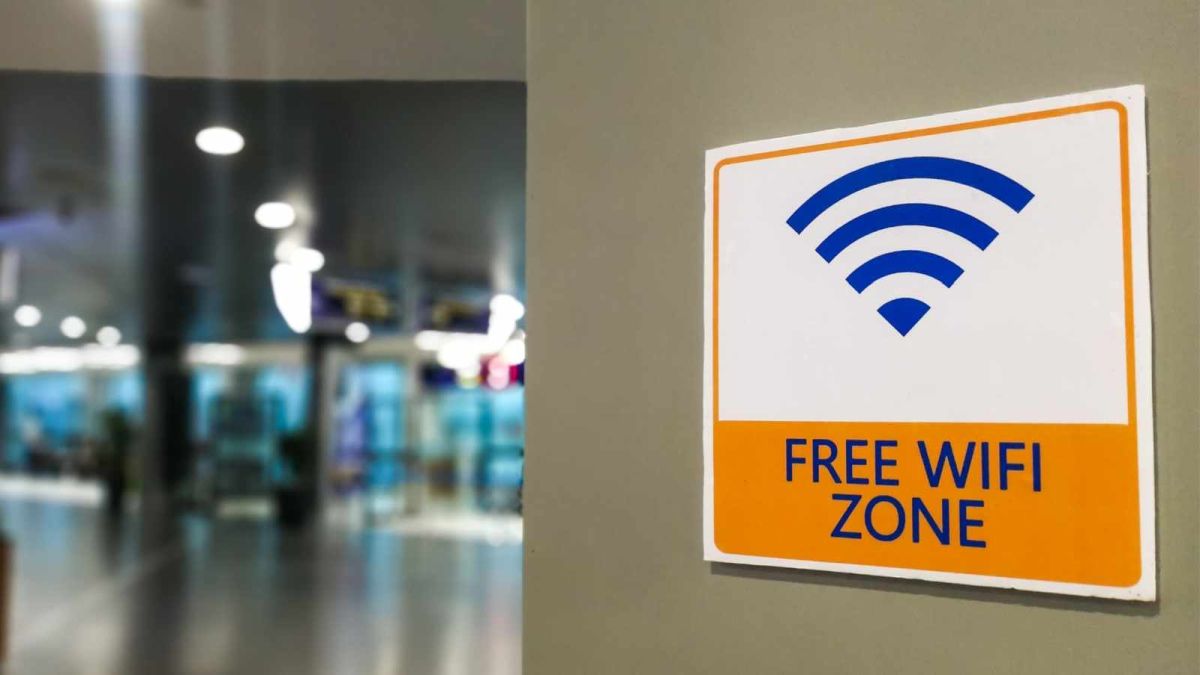












I have used and found no issues with them, good speed, decent connection and good overall using experience
Mullvad is by far the best VPN..I won’t trust anything else.
And of course you can point us to independent reviews by reputable people/organizations to back up that assertion?
FYI, Toronto is Canada, not the US!
Canada is a Five Eyes country so there’s not much of a difference. They are legally obligated to hand over logs and user ID info.
Not that being based in the Bahamas is much of a guarantee of anything either, because nothing stops three letter agencies from running shell companies from there either.
Two years ago i paid $70-80 for 5 yrs of purevpn service at Christmas time (for current members only). Amazing service and performance, great bandwidth… I have 300+ mbps internet without vpn and 200+ mbps with purevpn… Which is enough for most household.. I have it setup on my router so evrything that connects is secure (so easy)…
I like it..
As BP said, the price can be much lower. I paid a similar amount around back friday last year. The one thing you have to be aware of is that the subscription will be renewed automatically. And of course you’ll pay the full price then. So make sure that you contact support in order to cancel automatic renewel.
Also i can pay all my bills
Is there a specific reason why gHacks only gets to review untrustworthy shit services? The, let’s say, *slightly more trustworthy* VPNs usually have no affiliate programs, and they don’t appear here yet – what a coincidence. If you need to write these reviews in order to fund this website, please be upfront about it.
What’s stopping YOU (Iron(y) Heart), from reviewing and writing an article about said “*slightly more trustworthy* VPNs”?
Maybe being proactive requires more thought and effort than being reactive.
There are not any affiliate links in these reviews. Just read the disclaimer at the end of the review.
Who knows? gHacks knows how to do decent reviews. Not a single VPN reviewed here would be one I’d consider using.
The Android button articles were awesome, though!
Hong Kong, Pakistan, BVI, where will PureVPN be based next month?
The table above lists Express VPN (Kape) as based in Hong Kong and Pure VPN in BVI. Seems to be reversed, maybe not.
Fewer and fewer VPN’s are transparent or even translucent these days. Makes the choice of which to use much easier; there are probably less than 10 mainstream VPN’s that are any good.
With all the questions and lousy reviews found elsewhere on credible sites, Pure isn’t one I’d consider.
I use Surfshark. I’ve had no issues with my bank or Thunderbird as described above. I haven’t used Skipthedishes, eMclient or Firestick.
I have tried several (Paid) VPNs over the past year, to include Kaspersky, SurfShark, Proton and Nord VPN and every one had it’s share of issues.
1) Some Websites do not like them. The sites hang or will not load.
2) Financial Institutions (Web Banking) deny access until the VPN is disabled.
3) Food delivery services, such as Skipthedishes will not load, again, until the VPN is disabled.
4) Several email clients, Thunderbird, eMclient and EmailTray show configuration errors when
checking for new emails.
5) I ran SurfShark on my Amazon Firestick only to discover that my ISP doesn’t support it.
Can’t see the sense of paying for, then installing a VPN, when they deny access to important web
sites.
While paid VPNs do serve a purpose, there are way too many limitations and drawbacks that can affect one’s decision to use them.
The core of the problem of websites not loading is that spammers will use VPNs to cover their tracks (versus normal users who care about their security).
The problem is that the people working on the back end of those websites generally don’t have an in-depth comprehension of technology, look at where they are working. So they do not block based on behavior, just the IP address. The spammer does something stupid, changes their IP and then you end up getting stuck with the same IP address.
You can not fault the VPN because if they start trying to analyze behavior then the powers that be have a wedge to come in and justify quiet logging.
You can not fault the businesses because they’re generally too small to be able to even comprehend the issue or if you can fault them it’s because they just don’t care.
If you want to improve society so it doesn’t have these issues then you need to improve society to the point where both people who would become spammers don’t and the level of technology being used isn’t limited.
But don’t blame the VPNs who are PROTECTING YOUR DATA for the problems caused by other people.
For general browsing VPN’s are great; issues I’ve experienced are few and far between except with Chromia which throw up roadblocks too often anyway, VPN or not.
Financial, email, gov’t sites cause problems for me with VPN’s. Not sure why some users have issues and some don’t. I have heavy browser and OS ad blocking and anti-tracking implemented, maybe that has an effect but shouldn’t inside a VPN tunnel. So, IDK.